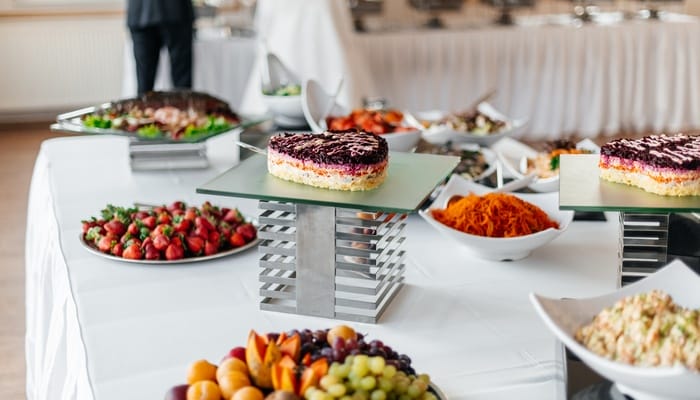Event planning involves countless decisions, but one choice can make or break your gathering: the food. Gone are the days when a simple sandwich platter satisfied everyone. Your guests arrive with diverse dietary needs, cultural preferences, and health considerations that demand thoughtful menu planning.
Smart event organizers recognize that inclusive food options are pivotal for creating memorable experiences that leave every attendee feeling valued and cared for. Let’s explore in more detail the importance of inclusive food options at large events.
The Real Impact of Thoughtful Menu Planning
Inclusive food options transform events from exclusive gatherings into welcoming spaces. When you provide varied menu choices, you demonstrate respect for your guests’ individual needs and backgrounds. This consideration extends beyond basic courtesy—it becomes a powerful statement about your values and attention to detail.
Consider the guest who discovers gluten-free options at your corporate dinner, or the vegetarian who finds more than wilted salad at your conference lunch. These thoughtful touches create positive impressions that last long after the event ends. Attendees remember feeling included rather than overlooked, and they associate those positive feelings with you and your organization.
Meeting Diverse Dietary Requirements
Your guest list likely includes people managing food allergies, following specific diets for health reasons, or making lifestyle choices that affect their food preferences. Vegetarians, vegans, and individuals avoiding gluten, dairy, or nuts need suitable options to fully participate in your event.
Religious dietary laws add another layer of consideration. Some guests follow kosher or halal requirements, while others observe cultural food traditions. Acknowledging these needs shows cultural sensitivity and creates an atmosphere where everyone feels comfortable.
Don’t overlook less obvious dietary considerations. Some attendees might follow low-sodium diets for heart health, avoid certain ingredients due to medical conditions, or simply prefer lighter fare. Offering varied portion sizes and preparation styles accommodates these preferences naturally.
Benefits That Extend Beyond the Menu
Inclusive food options enhance your event’s overall success in unexpected ways. Guest satisfaction increases when people can enjoy their meal without worry or compromise. Happy, well-fed attendees engage more actively in your programming and networking opportunities.
Your reputation as a thoughtful host grows when word spreads about your attention to dietary details. This reputation attracts diverse attendees to future events and positions you as someone who understands modern hospitality standards.
The business benefits are tangible, too. Companies that design more inclusive corporate events often see improved employee satisfaction, better client relationships, and enhanced brand perception. These outcomes justify the additional planning effort required for diverse menus.
Practical Steps for Menu Success
Start your planning by asking about dietary needs during the registration period. This simple step provides valuable data for caterer discussions and prevents last-minute scrambling. Work with catering partners who understand dietary restrictions and can suggest creative solutions beyond standard alternatives.
Label dishes clearly with ingredient information. This transparency helps guests make informed choices and demonstrates your commitment to their well-being. Train serving staff to answer questions about ingredients and preparation methods confidently.
Inclusive food options at large events represent and reflect your commitment to creating spaces where everyone belongs. When you prioritize diverse dietary needs, you build trust with attendees and establish yourself as a host who truly cares about guest experience.







